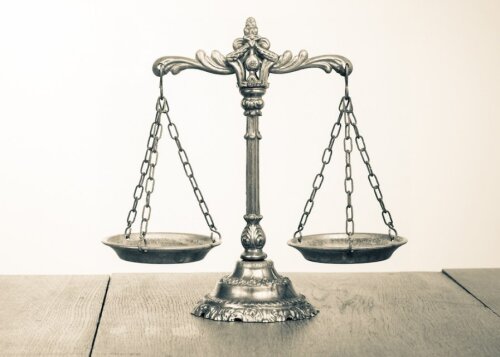Best Creditor Lawyers in Perm
Share your needs with us, get contacted by law firms.
Free. Takes 2 min.
List of the best lawyers in Perm, Russia
About Creditor Law in Perm, Russia
This guide explains the basic legal framework and practical steps for creditors in Perm, Russia. "Creditor law" covers the rights and remedies available to persons or companies that are owed money or other performance - including making claims, securing debts with collateral, enforcing court judgments, and participating in bankruptcy cases. Legal processes in Perm follow federal Russian laws supplemented by regional procedures and the rules of local courts and enforcement authorities in Perm Krai. This content is for general informational purposes and is not a substitute for personalized legal advice.
Why You May Need a Lawyer
Debt collection and creditor protection often involve complex procedural and substantive law. A lawyer can help in these common situations:
- Preparing and reviewing loan or supply agreements to ensure enforceable terms and effective security interests.
- Drafting demand letters and negotiating out-of-court settlements to avoid costly litigation.
- Filing civil or arbitration claims against debtors, and representing you in Perm city courts or the Arbitration Court of Perm Krai.
- Securing and perfecting collateral - for example, drafting pledges, mortgages, or guarantees - to strengthen your position if the debtor defaults.
- Managing enforcement of court judgments through the Federal Bailiff Service - for example, recovery from bank accounts, salary garnishment, or forced sale of assets.
- Advising on creditor rights and strategy in insolvency and bankruptcy proceedings.
- Conducting legal due diligence before enforcing or restructuring debts to reduce legal and commercial risks.
Local Laws Overview
Key legal instruments and institutions relevant to creditors in Perm include the following federal laws and local bodies, applied through Perm Krai courts and enforcement agencies:
- Civil Code of the Russian Federation - sets out basic obligations, contract rules, remedies for breach, statute of limitations and rules on secured transactions such as pledge and mortgage.
- Federal Law on Enforcement Proceedings - governs the work of bailiffs, methods of enforcing court decisions, provisional measures and seizure procedures.
- Federal Law on Insolvency (Bankruptcy) - regulates bankruptcy proceedings for legal entities and individuals, priorities among creditors, creditor committees, and restructuring options.
- Civil Procedure Code and Arbitration Procedure Code - prescribe litigation rules, jurisdiction, evidence, deadlines, and appeal routes for civil and commercial claims respectively.
- Bank of Russia rules and federal laws governing banks and financial services - relevant when dealing with credit institutions or seeking freezing of bank accounts.
Local institutions in Perm that creditors commonly interact with include the Arbitration Court of Perm Krai for commercial disputes, Perm city and district courts for consumer and civil claims, the regional office of the Federal Bailiff Service for enforcement, regional notaries for authentication of documents, and local offices of federal agencies such as the Federal Tax Service and Rospotrebnadzor when administrative remedies or information requests are needed.
Frequently Asked Questions
How do I start a debt-collection claim in Perm?
Begin by gathering written evidence - contracts, invoices, delivery documents, payment orders, correspondence and any guarantees. Attempt a formal demand - a notarized demand letter can increase pressure. If negotiation fails, file a claim in the appropriate court - use the Arbitration Court for commercial disputes between legal entities or entrepreneurs, and city or district courts for consumer and individual claims. A lawyer can ensure the claim is framed correctly and all jurisdictional and procedural requirements are met.
What documents do I need to prove a debt?
Key documents include the contract or agreement, invoices, delivery or acceptance acts, bank payment statements, bills of exchange or promissory notes, guarantees or security agreements, correspondence showing default, and any court or notarized documents. Properly executed and dated documents help establish the debt, its amount, and the debtor's acknowledgement.
How long will it take to get a judgment and enforce it?
Timelines vary by case complexity and court workload. Simple civil claims may proceed in a few months, while contested commercial disputes and appeals can take longer. After a judgment, enforcement by bailiffs can also take weeks or months depending on the debtor's solvency and the availability of attachable assets. Early legal advice and prompt evidence-gathering can shorten the process.
Can a creditor seize a debtor's bank accounts or property in Perm?
Yes, after obtaining a court judgment, creditors can instruct the Federal Bailiff Service to enforce it. Bailiffs may freeze and restrain bank accounts, seize and sell movable property, place liens on real estate, and garnish wages subject to statutory protections. The effectiveness of enforcement depends on locating assets and legal protections that may limit seizure.
What protections does a debtor have against enforcement?
Russian law protects basic subsistence and certain categories of property from seizure. There are also limits on the share of wages that can be garnished and special protections for some types of income and property. Debtors may challenge enforcement actions in court or file insolvency proceedings if they meet legal criteria. A creditor should expect legal defenses and prepare documentation to support the claim and the legality of enforcement measures.
What is the statute of limitations for collecting a debt?
The Civil Code establishes general limitation periods for claims - many monetary claims fall under a three-year period from the moment the creditor knew or should have known about the breach. There are exceptions and different periods for specific types of claims. Limitation can be interrupted or suspended in certain circumstances, so check with a lawyer before filing suit to avoid losing rights by delay.
How does bankruptcy affect creditors in Perm?
If a debtor is declared bankrupt under the federal insolvency law, enforcement by individual creditors is generally stayed and claims must be filed in the bankruptcy proceedings. Creditors participate in the creditors' meeting, may form creditor committees, and receive distributions according to statutory priority rules. Secured creditors often have better recovery prospects, but bankruptcy is a specialized area where creditor strategy and timing are critical.
Can I secure a loan with collateral in Perm - and how?
Yes. Common security measures include pledges of movable property, mortgages of real estate, and surety or guarantees by third parties. Proper documentation, registration of security interests where required, and compliance with formalities are essential to ensure priority and enforceability. Notarial acts or registration with public registers may be necessary for certain types of collateral.
What are out-of-court options to recover a debt?
Alternatives include negotiated repayment plans, mediated settlement, formal demand letters, notarized acknowledgements of debt, and using collection agencies. Out-of-court resolutions are often faster and less costly than litigation, but ensure any settlement is documented and enforceable - for example, via a notarized agreement or a court-approved settlement.
When should I hire a lawyer in Perm for creditor matters?
Engage a lawyer early if the debt is significant, the debtor disputes the claim, complex security or bankruptcy issues are likely, or urgent enforcement measures are required. A lawyer can assess legal merits, optimize claim drafting, advise on security and enforcement strategies, represent you in court and before bailiffs, and help protect your position throughout litigation or insolvency proceedings.
Additional Resources
Helpful local and federal institutions for creditors in Perm include local courts - including the Arbitration Court of Perm Krai - and the regional office of the Federal Bailiff Service, which enforces judgments. Federal agencies such as the Ministry of Justice, the Federal Tax Service and the Bank of Russia provide public registers and oversight that can assist with due diligence. Regional consumer protection authorities and chambers of commerce can also offer guidance in certain disputes. Local notaries and licensed arbitration or mediation centers provide procedural services and alternative dispute resolution.
Next Steps
If you need legal help as a creditor in Perm - take these practical steps:
- Preserve and organize all documents that prove the debt - contracts, invoices, payment records, correspondence and evidence of default.
- Attempt written demand and negotiation - consider a notarized demand letter to document your efforts.
- Consult a qualified lawyer experienced in creditor and insolvency law - they can assess your chances, recommend litigation or out-of-court strategies, and prepare necessary pleadings.
- If litigation is necessary, file in the correct court with a well-supported claim and full evidence package.
- If you obtain a judgment, prepare for enforcement by providing the bailiffs with debtor details and information about known assets and bank accounts.
- If the debtor appears insolvent, seek specialist advice on bankruptcy procedures and how to protect or advance your claim in insolvency.
Early, well-documented action and professional legal assistance increase the likelihood of successful recovery. If you are unsure how to proceed, contact a local attorney to review your case and outline options tailored to Perm and federal law.
Lawzana helps you find the best lawyers and law firms in Perm through a curated and pre-screened list of qualified legal professionals. Our platform offers rankings and detailed profiles of attorneys and law firms, allowing you to compare based on practice areas, including Creditor, experience, and client feedback.
Each profile includes a description of the firm's areas of practice, client reviews, team members and partners, year of establishment, spoken languages, office locations, contact information, social media presence, and any published articles or resources. Most firms on our platform speak English and are experienced in both local and international legal matters.
Get a quote from top-rated law firms in Perm, Russia — quickly, securely, and without unnecessary hassle.
Disclaimer:
The information provided on this page is for general informational purposes only and does not constitute legal advice. While we strive to ensure the accuracy and relevance of the content, legal information may change over time, and interpretations of the law can vary. You should always consult with a qualified legal professional for advice specific to your situation.
We disclaim all liability for actions taken or not taken based on the content of this page. If you believe any information is incorrect or outdated, please contact us, and we will review and update it where appropriate.










